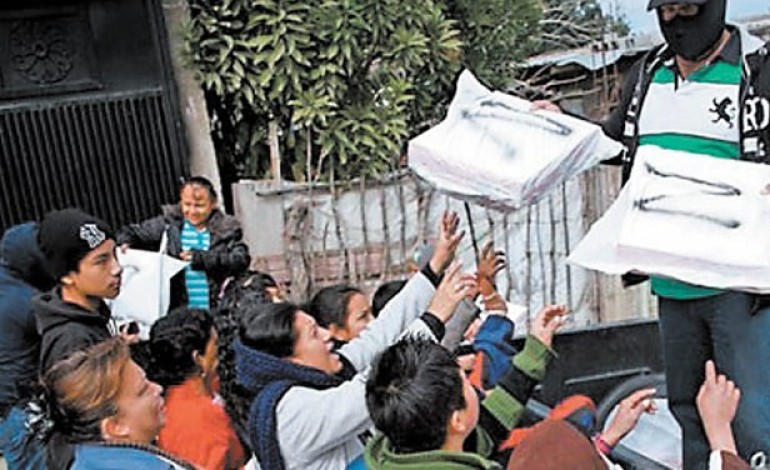Experimental Research
Previous Studies
- 2013 Attitudinal Study (UNAM-Mexico City)
- Participants receive information about: a) the amount of income being stolen and b) the likelihood of other actors (neighbors and police) to enter the game in subsequent stages.
- Participants make their choice.
- Outcomes are decided using a ten sided dice.
In collaboration with the Department of Psychology of the National Autonomous University of Mexico (UNAM), I recruited 450 undergraduate students to participate in a study during the fall of 2013. The study was aimed at investigating some of the forces behind citizens’ support for collective anti-criminal action (a.k.a. vigilante justice).
I asked participants to read one of four versions of a mock newspaper article inspired on the conditions that were present in a small town in Guerrero (western Mexico) at the moment. All the versions of the article described how a criminal organization had seized the aid sent to the town after hurricane Manuel. However, each version the portrayed the trustworthiness of neighbors and local police in a different light.
After reading the article, participants were asked whether they thought that “concerned-citizens” should attempting to engage in collective anti-criminal action. Finally, participants were debriefed and given extra-credit for their participation. The results of this study are described in Chapter IV of my dissertation and are being prepared for submission to a peer-reviewed journal
For more information contact me at: daniel.zizumbo@cide.edu
2014 Behavioral Study (Olympic Villa-Mexico City)
Thanks to the generous support of Vanderbilt University’s RIPS-Lab, in the fall of 2014 I set up a field-laboratory in one of the largest apartment complexes in Mexico City. I created a behavioral experiment (referred to as The Extralegal Confrontation Experiment) to study citizens’ choices after having part of their income stolen.
Participants received an endowment at the beginning of the study and gained additional income at the beginning of each round. Then, at the beginning of each round, they received additional income and have a proportion of their total winnings stolen by a take authority (a.k.a. the thief). Then, they can choose whether to a) a try to confront the thief for the opportunity to recover their lost income (risking to incur in additional “losing” or “legal costs”) or b) do nothing and hope for the intervention of the police.
In each round:
Note that the outcomes were designed to reflect the potential consequences of engaging in vigilante behavior in the real world (see figure 18).
Within each round, I randomly manipulated the amount of income stolen by the thief (crime severity), the likelihood of the police to enter the game (police trustworthiness), the likelihood of their neighbors to enter the game (neighbors trustworthiness), and recorded participants’ choice (confront or not confront). The results of this study are described in Chapter IV of my dissertation and are being prepared for submission to a peer-reviewed journal
For more information contact me at: daniel.zizumbo@cide.edu
Gallery:
















Connect with Vanderbilt
©2025 Vanderbilt University ·
Site Development: University Web Communications